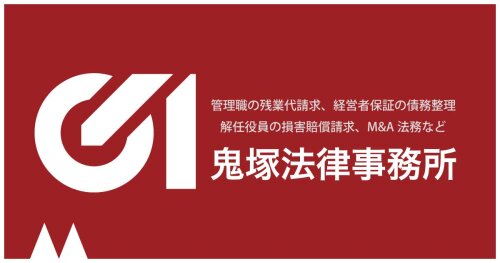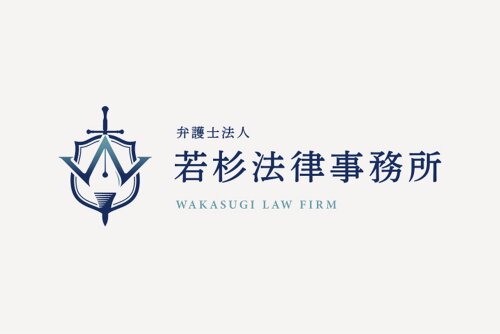Best Labor Law Lawyers in Fukuoka
Share your needs with us, get contacted by law firms.
Free. Takes 2 min.
List of the best lawyers in Fukuoka, Japan
About Labor Law in Fukuoka, Japan
Labor Law in Fukuoka is aligned with national standards established by the Japanese government but may also reflect certain regional practices. Japanese labor law is primarily designed to protect workers’ rights, maintain workplace harmony, and ensure fair and safe employment conditions. Fukuoka, as a major city on Kyushu island, features diverse industries, from tech startups to traditional manufacturing, which means workers and employers frequently encounter unique challenges in the workplace. Labor law covers contract terms, wages, working hours, dismissal, workplace safety, and harassment prevention, among other vital aspects.
Why You May Need a Lawyer
Many people in Fukuoka seek legal advice on labor law for a variety of reasons. Here are some common scenarios where hiring a labor lawyer may be necessary:
- Unfair Dismissal: Employees who have been terminated without proper cause or notice may need help understanding their rights and seeking reinstatement or compensation.
- Unpaid Wages or Overtime: Disputes may arise when employees do not receive the proper payment for their work, including overtime or bonuses.
- Workplace Harassment or Discrimination: Issues of power harassment, sexual harassment, or discrimination based on gender, age, or nationality sometimes require legal intervention.
- Negotiating Contracts or Work Conditions: Difficulties in understanding or negotiating employment contracts or workplace rules can prompt the need for professional advice.
- Labor Union Issues: Participation in union activities or collective bargaining may lead to conflicts requiring legal clarification.
- Unfair Demotion or Transfer: Employees who are demoted, transferred, or reassigned without valid reason may have grounds for a legal claim.
Local Laws Overview
The key aspects of labor law that apply specifically in Fukuoka are dictated by Japan’s national statutes, such as the Labor Standards Act, the Industrial Safety and Health Act, and the Equal Employment Opportunity Law. However, there are important local features to be aware of:
- Employment Contracts: In Fukuoka, written contracts are common and should detail working hours, pay, job duties, and other terms. Both "regular" and non-regular workers (such as part-time or temporary staff) are protected, but contract specifics may vary.
- Working Hours and Overtime: The standard workweek is usually 40 hours with a cap on overtime, but local customs might influence the actual working arrangements. Labor audits are occasionally carried out to ensure compliance.
- Minimum Wage: Fukuoka has a region-specific minimum wage that employers must comply with. This wage is updated annually.
- Harassment Prevention: The Fukuoka government emphasizes efforts to eliminate workplace harassment and provides information to both employers and employees about reporting and addressing harassment.
- Labor Dispute Resolution: The Fukuoka Labor Bureau and Labor Standards Inspection Office help mediate disputes and enforce labor laws. There are also labor tribunals and ADR (Alternative Dispute Resolution) services for out-of-court settlements.
Frequently Asked Questions
What is the standard workweek and how much overtime is allowed?
The standard workweek in Fukuoka is 40 hours, usually spread over five days. Overtime is allowed by law, but the amount is capped and must be compensated at a premium rate. Employers need to obtain agreements called "36 Agreements" with employees to allow overtime.
What is the minimum wage in Fukuoka?
The minimum wage in Fukuoka is set annually by the local government based on national and regional factors. It generally reflects the cost of living and economic conditions in the region. Check the latest figures through the Fukuoka Labor Bureau.
Can my employer terminate my contract without reason?
No. Under Japanese law, dismissal must be supported by reasonable cause and proper procedure. Sudden or unfair termination is not permitted, and employees can contest dismissals they consider unjustified.
How can I address workplace harassment or discrimination?
Employees facing harassment or discrimination should report incidents to their supervisor or human resources department. If unresolved, the Fukuoka Labor Bureau and labor lawyers can provide support and legal recourse.
What happens if my employer fails to pay my wages?
If wages are unpaid or delayed, you should first discuss the matter with your employer. If the issue is not resolved, you can file a complaint with the Labor Standards Inspection Office or seek legal advice to recover your earnings.
Do I have to sign a written contract?
While some employment can be based on oral agreements, Japanese labor law generally requires employers to provide written contracts that clearly outline working conditions. This is especially necessary for non-regular workers.
Are there special protections for non-Japanese workers?
Yes. Foreign nationals working in Fukuoka have the same labor rights as Japanese citizens. Language barriers or visa status may complicate matters, so seeking legal advice can help clarify your rights and options.
Can I join or form a labor union?
Yes. Japanese law protects the right to join or organize labor unions, and collective bargaining is supported. Unfair treatment for union membership is unlawful.
What resources exist for resolving workplace disputes?
Aside from court litigation, there are labor mediation services, the Fukuoka Labor Bureau, and Labor Standards Inspection Offices. Many disputes are resolved through alternative dispute resolution methods.
What should I do if I am demoted or transferred unfairly?
Consult with your employer and request a clear explanation. If you believe the action was unjustified or discriminatory, consult the Labor Standards Inspection Office or a qualified labor lawyer in Fukuoka.
Additional Resources
There are several resources and organizations in Fukuoka where you can obtain information or assistance on labor law matters:
- Fukuoka Labor Bureau: Provides official guidance and mediates disputes between employers and employees.
- Labor Standards Inspection Office: Handles complaints regarding wage issues, working hours, health and safety, and unfair dismissal.
- Japanese Trade Union Confederation (Rengo): Offers advice and support for unionized and non-unionized workers alike.
- Legal Consultation Centers: Many city offices offer low-cost or free legal consultations with licensed attorneys specializing in labor law.
- Ministry of Health, Labour and Welfare (MHLW) - Fukuoka Branch: Supplies comprehensive information about labor laws and protection measures.
Next Steps
If you think you need legal assistance in labor law, follow these steps:
- Gather all relevant documents, such as employment contracts, pay slips, written communications, and notes detailing incidents or problems.
- Identify the specific issue you are experiencing, whether it is related to dismissal, wage disputes, harassment, discrimination, or contracts.
- Contact the Fukuoka Labor Bureau or your local Labor Standards Inspection Office for preliminary advice and complaint procedures.
- If you are unable to resolve the problem through government mediation, consult a lawyer specializing in labor law to discuss your options and receive professional legal representation if needed.
- Consider reaching out to trade unions or worker advocacy groups for additional support.
Professional legal advice can help you protect your rights, understand your responsibilities, and resolve workplace issues efficiently under labor law in Fukuoka, Japan.
Lawzana helps you find the best lawyers and law firms in Fukuoka through a curated and pre-screened list of qualified legal professionals. Our platform offers rankings and detailed profiles of attorneys and law firms, allowing you to compare based on practice areas, including Labor Law, experience, and client feedback.
Each profile includes a description of the firm's areas of practice, client reviews, team members and partners, year of establishment, spoken languages, office locations, contact information, social media presence, and any published articles or resources. Most firms on our platform speak English and are experienced in both local and international legal matters.
Get a quote from top-rated law firms in Fukuoka, Japan — quickly, securely, and without unnecessary hassle.
Disclaimer:
The information provided on this page is for general informational purposes only and does not constitute legal advice. While we strive to ensure the accuracy and relevance of the content, legal information may change over time, and interpretations of the law can vary. You should always consult with a qualified legal professional for advice specific to your situation.
We disclaim all liability for actions taken or not taken based on the content of this page. If you believe any information is incorrect or outdated, please contact us, and we will review and update it where appropriate.













